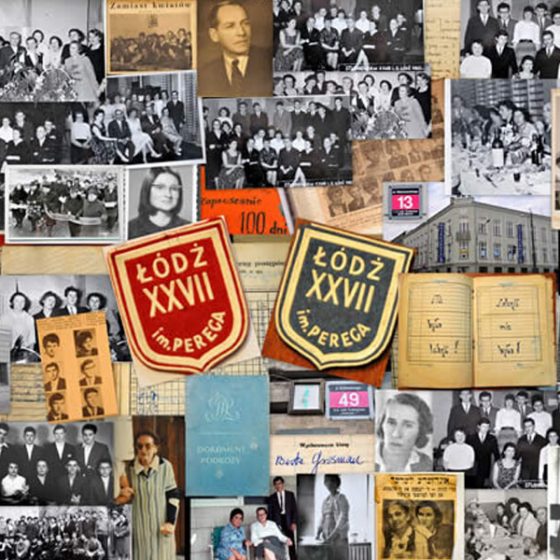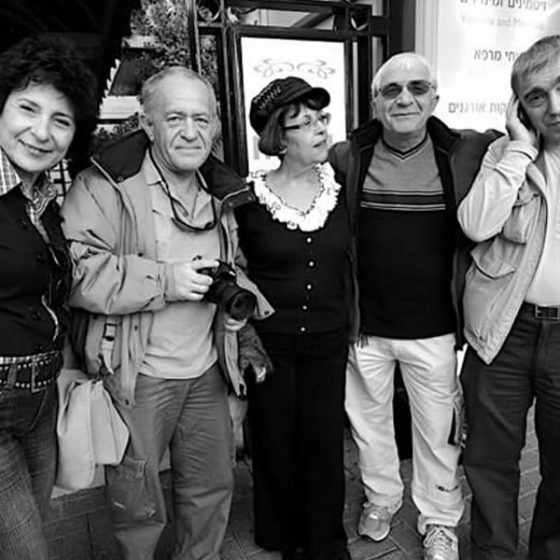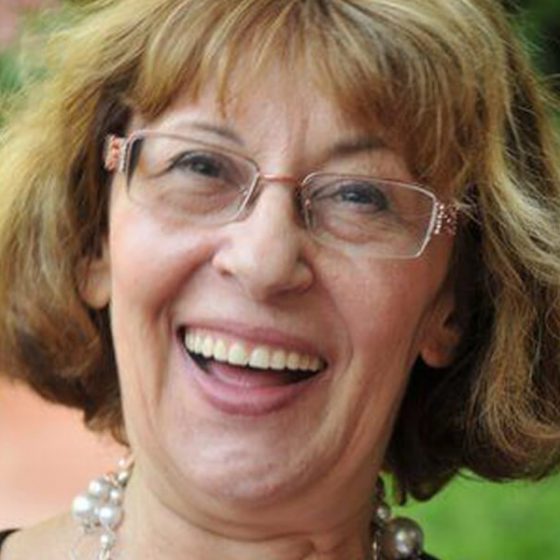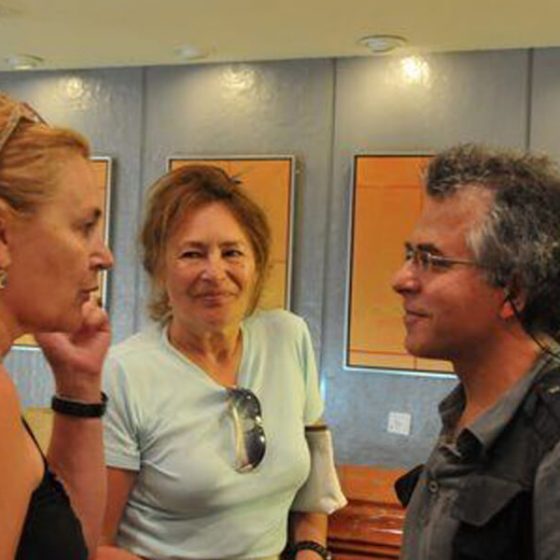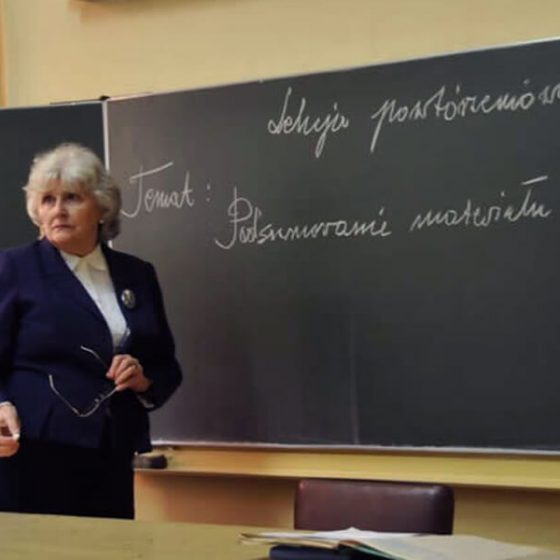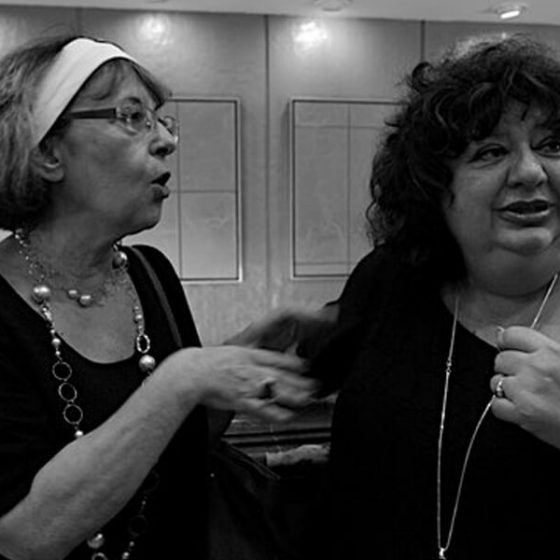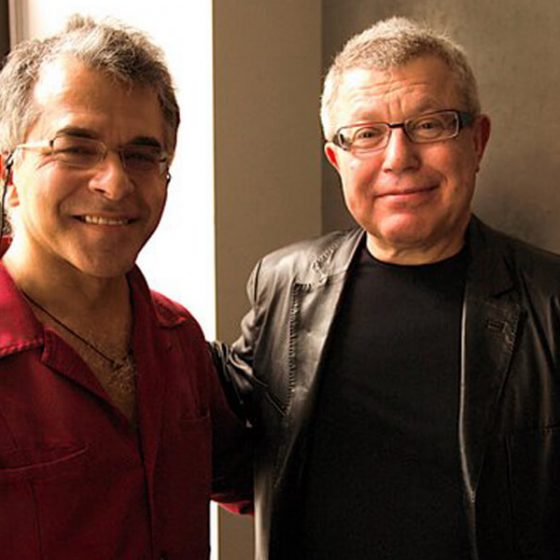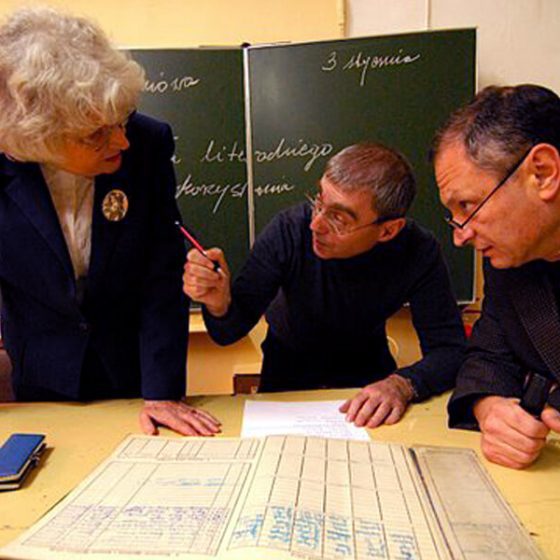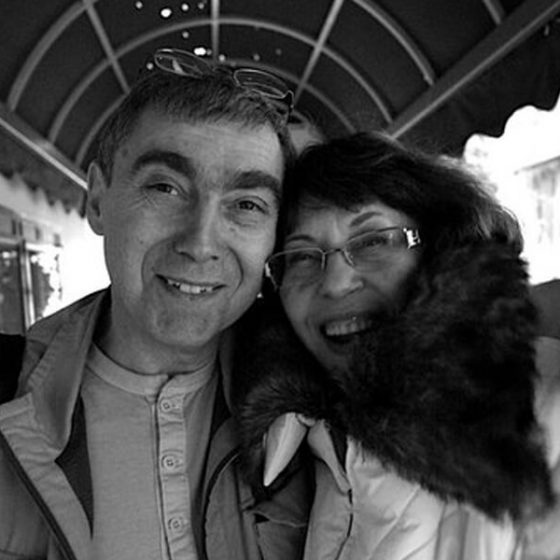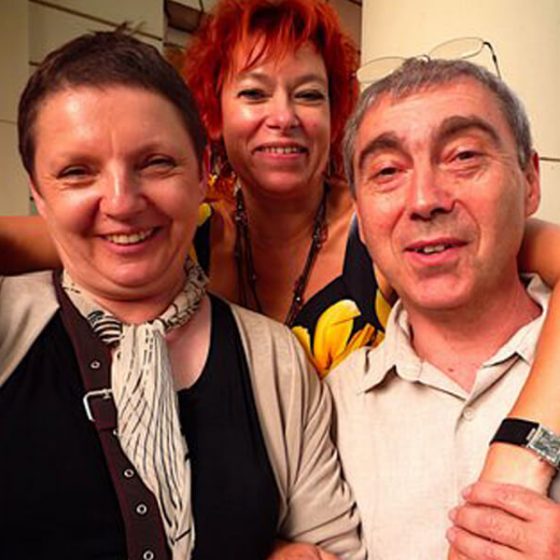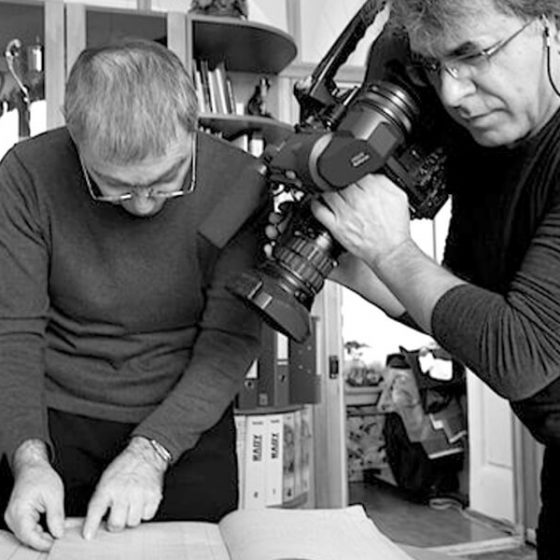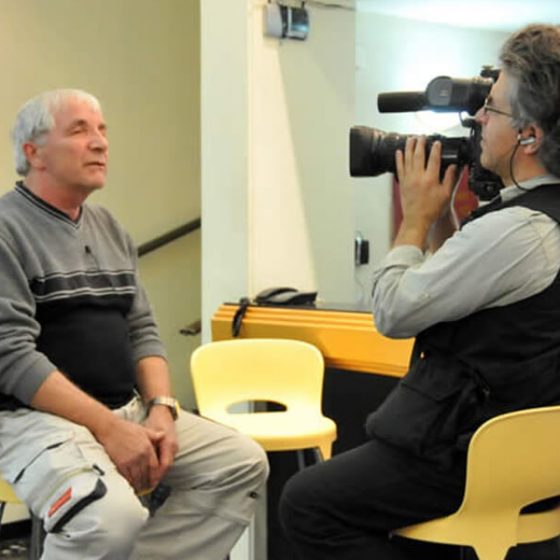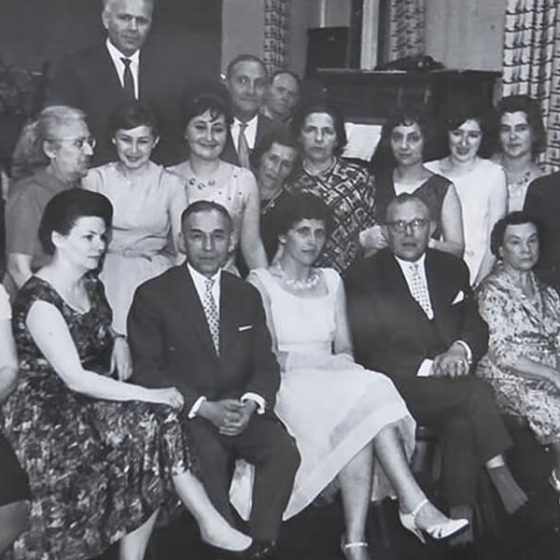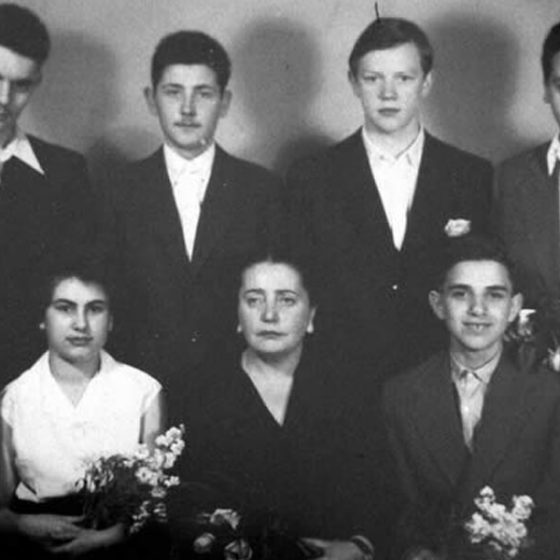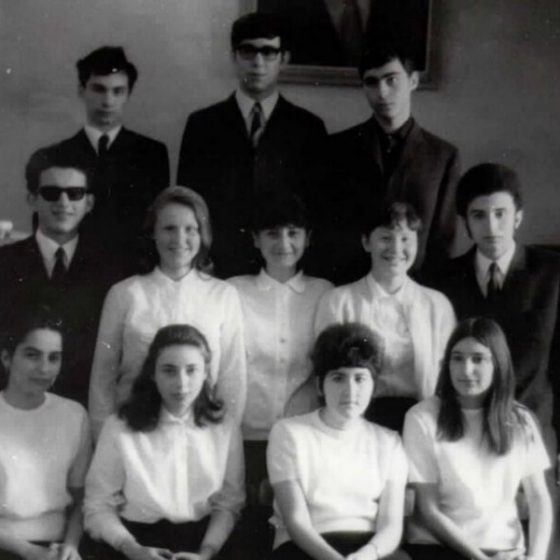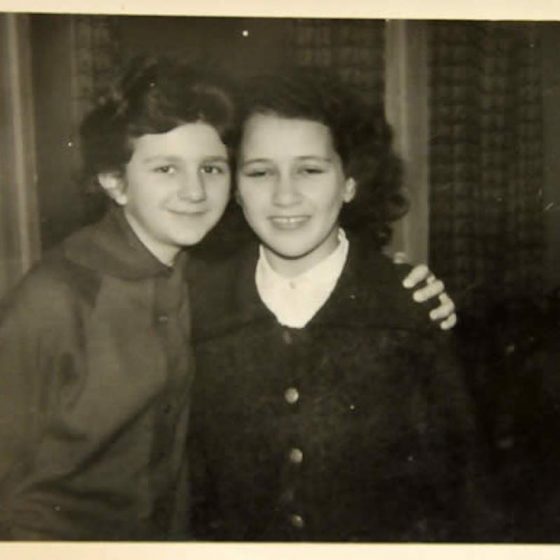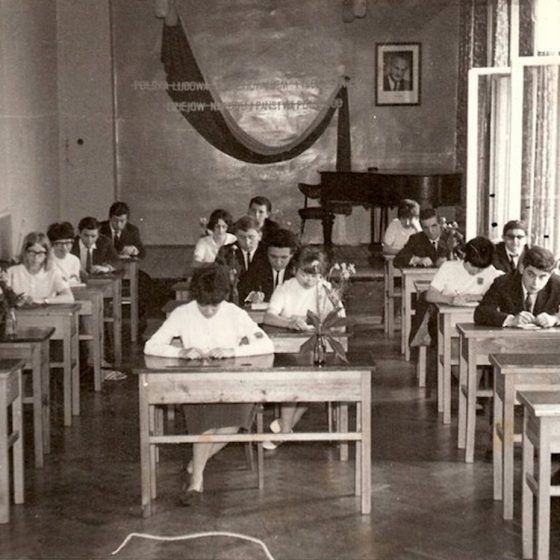The Peretzniks (Perecowicze)
The events of March ’68 are still somewhat obscure in Poland. The political background is known, as are the film archives, and press coverage. However, little is known about how it was to grow up in Poland of the sixties as a Polish Jew, or as a Pole of Jewish origin. How it was to be a kid in the heart of a country still recovering from a horrific war, in a family severed by the Holocaust, and then to come of age and experience first loves at the outbreak of the disturbing March events. The experience of the ‘Peretz School’ pupils in Lodz in some way reflects the experience of the Jewish minority in Poland in the 50 and 60 of the previous century. Read more below.
Additional language streaming options:
French
ABOUT FILM
ABOUT FILM - IN POLISH
CREDITS
SCREENINGS AND AWARDS
BROADCAST HISTORY
REVIEWS AND REACTIONS
ABOUT FILM
The events of March ’68 are still somewhat obscure in Poland. The political background is known, as are the film archives, and press coverage. However, little is known about how it was to grow up in Poland of the sixties as a Polish Jew, or as a Pole of Jewish origin. How it was to be a kid in the heart of a country still recovering from a horrific war, in a family severed by the Holocaust, and then to come of age and experience first loves at the outbreak of the disturbing March events. The experience of the ‘Peretz School’ pupils in Lodz in some way reflects the experience of the Jewish minority in Poland in the 50 and 60 of the previous century. It is the experience of adolescents nevertheless, who were much more interested in the Beatles than they were in politics. It was the latter, however, which caused for most of them to scatter all over the world, creating a peculiar phenomenon of a Polish-Jewish Diaspora integrated today in so many countries’ identities.
The Peretz graduates’ experience shows that though they were made to leave Poland, they never quite said goodbye, not quite to Poland and certainly not to old friendships. The emotions they show are not nostalgia, but rather a real part of their lives. This documentary is not another film about immigration. Nor is it a film about nostalgia for school years. “That school was our entire life” – one of the characters in the film says. “It wasn’t just a school… it was a way of life” – says another. The Peretz school created a peculiar microcosm, where one could have a sense of security, but – most importantly – a sense of community. It was a common experience of the ‘Peretzniks’ that they were born in families affected by the Holocaust. For most, this meant not having any grandparents, or aunts or uncles, and often not having any siblings. The school was in some sense an extended foster family and an oasis, where our characters could feel like ‘normal’ kids.
This film tells the story of an exceptional family, which the ‘Peretzniks’ created for themselves in the heart of post-war Lodz, and which became perhaps even stronger because history made every effort to break it apart. The Peretzniks is the first documentary, which addresses the complexities of Jewish existence in post-war Poland under the Communist regime.
To our parents and teachers, and to the memory of our lives in Lodz.
The Peretzniks
Duration: 1 hour 32 minutes
ABOUT FILM - IN POLISH
Wydarzenia marcowe 68 roku nadal sa w Polsce malo znane. Znamy kulisy polityczne, widzielismy kroniki filmowe, czytalismy artykuly prasowe. Znamy nawet fragmenty opowiesci o wyjazdach, o pozegnaniach. Malo jednak wiemy o tym jak to bylo dorastac w Polsce lat 60 jako polski Zyd, czy jako Polak z zydowskim pochodzeniem. Jak to bylo zyc jako dziecko w sercu kraju powstajacego na nogi po najstraszniejszej wojnie, w rodzinie zdziesiatkowanej przez Holokaust, a nastepnie dojrzewac i przezywac pierwsze milosci w przededniu marcowej zawieruchy. Doswiadczenia uczniow Szkoly Pereca w Lodzi w pewnym sensie odzwierciedlaja doswiadczenie mniejszosci zydowskiej w Polsce w latach 50 i 60 ubieglego wieku, zachowujac jednoczesnie perspektywe ludzi mlodych, ktorzy bardziej interesowali sie Beatles’ami niz Gomulka. A jednak to ten ostatni wlasnie przyczynil sie do tego, ze ogromna wiekszosc z nich rozpierzchla sie po calym swiecie, tworzac fenomen specyficznej polsko-zydowskiej diaspory wplecionej do dzis w tozsamosci tylu krajow.
Doswiadczenie Perecowiczow pokazuje nam, ze pomimo tego, ze wyjechali z Polski, nie rozstali sie do konca ani z nia ani z dawnymi przyjazniami. I te emocje, ktore pokazuja to nie nostalgia, a rzeczywista czesc ich zycia. Film ten nie jest kolejnym filmem o emigracji. Nie jest takze filmem o nostalgii do szkoly. “Szkola to bylo cale nasze zycie” – mowi jedna z bohaterek filmu. “To nie byla tylko szkola. to byl sposob zycia” – dodaje kolejny bohater. Szkola tworzyla pewien mikrokosmos, ktory dawal poczucie bezpieczenstwa, a przede wszystkim poczucie wspolnoty. Wspolnym doswiadczeniem wiekszosci Perecowiczow bylo to, wszyscy urodzili sie w rodzinach dotknietych przez Holokaust. U wiekszosci oznaczalo to, ze nie mieli dziadkow, ze czesto nie mieli cioc, ani wujkow, rzadko tez mieli rodzenstwo. Szkola byla wiec w pewnym sensie rodzina zastepcza i oaza, gdzie czuli, ze moga byc soba, gdzie mogli czuc sie jak ‘normalne’ polskie dzieciaki.
Ten film opowiada wiec o niezwyklej rodzinie, ktora stworzyli dla siebie Perecowicze w sercu powojennej Lodzi, i ktora stala sie jeszcze silniejsza przez to, ze historia probowala ja rozbic. Perecowicze to pierwszy dokument, ktory opowiada o zydowskiej egzystencji w powojennej Polsce w czasach komunistycznego rezimu.
Naszym rodzicom, nauczycielom i pamieci naszego zycia w Lodzi.
Perecowicze
CREDITS
Director:
Slawomir Grünberg
Editor & Assistant Director:
Katka Reszke
Music:
Joel Dancyger
Director of Photography:
Slawomir Grünberg
Production Manager:
Henryk Lewkowicz
2nd Editor:
Basia Winograd
Produced by:
Shalom Foundation, Golda Tencer
Co-Produced by:
LOGTV,Ltd , TVP 1
Co-financed by:
Polish Film Institute
Dir.
Agnieszka Odorowicz, The City of Lodz
2nd Production Manager:
Hanna Paluba
On-line Editor:
Arek Arciszewski
Narrated by:
Sara Kagan & Wlodzimierz Press
Featured Photographs:
Katka Reszke
SCREENINGS AND AWARDS
SCREENINGS
• Hannukah Festival at the White Stork Synagogue in Wroclaw, Poland, December 3, 2013
• Krytyka Polityczna, “Tolerance Workshop”, Lodz, Poland, November 29, 2012
• Mamele Klub, Warsaw, organized by the Shalom Fundation, March 8, 2012
• ‘A New Historic Cinema” Nowe Kino Historyczne, BUW, Warsaw
Organized by the Independent Student’s Association of the University of Warsaw, March 6, 2012 (Link)
• Krytyka Polityczna, Lodz, Poland, February 23, 2012
• Martha’s Vineyard Hebrew Center, MA, USA
Q&A with Slawomir Grunberg (Director) and Katka Reszke (Editor) will follow the screening, September 11, 2011
• Tel Aviv Cinematheque, Israel
May 30, 7.30 pm. Q&A with Slawomir Grunberg (Director) and Katka Reszke (Editor) will follow the screening, May 30, 2011 (Link)
• Reunion 68’, Ashkelon, Israel
Q&A with Slawomir Grunberg (Director), Katka Reszke (Editor) and the Peretzniks will follow the screening, May 24, 2011
• Universidad Anahuac, Mexico City, Mexico, April 4, 2011
• Museum of Memoria y Tolerancia, Mexico City, Mexico, April 3, 2011
• Caracas, Venezuela, Universidad Catolica Andres Bello, March 25 , 2011
• Polish Institute in Tel Aviv, Israel
6.00 pm. Q&A with Peretzniks will follow the screening, March 17, 2011 (Link)
• Screening of The Peretzniks (Perecowicze) – 52 min. version and discussion. “Marzec 68” – Book promotion event, Lodz, Dom Kultury, Traugutta 18, 5 PM, March 8 , 2011
• Ottawa Jewish Film Society, Ottawa, Canada, January 26 , 2011 (Link)
• The 12 Jerusalem Jewish Film Festival, Jerusalem, Israel, December 4-10 , 2010 (Link)
• The 2010 Festival of Jewish Cinema, Sydney, 23rd November – 9:00pm, Melbourne, 16th November – 8:00pm, November 9-29 , 2010
• 22 Polish Film Festival in America in Chicago, November 5-21, 2010
• The Peretzniks at the Youth Cultural Center, Slupsk, Poland
Organized by the Foundation for the Preservation of Jewish Heritage in Poland, August 26, 2010 (Link)
• The Peretzniks at the Polish Home, Seattle, WA, August 18, 2010 (Link)
• 4th Film and Art Festival “Two Riversides” (Dwa Brzegi), Kazimierz Dolny, Poland, August 3, 2010 (Link)
• The Peretzniks at the International Conference on Jewish Genealogy, Los Angeles, July 11-16, 2010
• Canadian Premiere of ‘The Peretzniks’ (Perecowicze), June 8-10, 2010 (Link)
• 50th International Krakow Film Festival, Review of Polish Cinema (Panorama Kina Polskiego)
Kino pod Baranami, Rynek Glowny 27, June 5, 2010 (Link)
• JCC Krakow, Poland, June 2-4, 2010 (Link)
• Temple Emanu-El, New York City
American Society for Jewish Heritage in Poland ASJHIP,
Q&A with the film Director, Marek Web and Jan Gross, May 17, 2010
• New England Premiere, JEWISHFILM.2010
The National Center for Jewish Film’s
13th Anual Film Festival, Brandeis University, Waltham, MA
SPECIAL GUESTS: Filmmakers Slawomir Grunberg and Katka Reszke & A Peretznik – Lilka Elbaum, April 14, 2010 (Link)
• Jewish Motifs – International Film Festival
Warsaw, Poland, April 20-25, 2010 (Link)
• The U.S. Premiere at The New York Jewish Film Festival
A collaboration between the Jewish Museum (Link) and the Film Society of Lincoln Center (Link).
Walter Reade Theater at Lincoln Center in New York City
Film Festival E-flier on Flickr, January 21, 2010 and January 27, 2010 (Link)
• The South American Premiere
VII Jewish Film Festival of Punta del Este, Uruguay, February 6-11, 2010
• Warsaw Premiere Screening, The Jewish Theater in Warsaw The 6th Festival of Jewish Culture “Singer’s Warsaw”, September 2, 2009
• Lodz Premiere Screening, Theater Nowy, Lodz 65th Anniversary of Liquidation of the Litzmannstadt Ghetto, August 29, 2009
BROADCAST HISTORY
• TVP 1 (Polish TV 1), October, 2009
• TV Polonia, April 2010
REVIEWS AND REACTIONS
The Peretzniks
Jewish Cinema Fest Australia
This touching documentary from New York-based, Polish-Jewish filmmaker Slawomir Grünberg (Saved By Deportation, The Legacy of Jedwabne) tells the story of a celebrated Jewish day school in Lodz.
Established after the war to try and resurrect Jewish life in Poland, the school closed in 1968 when an anti-Semitic campaign led to a wave of emigration that scattered pupils and their families around the world.
Grünberg gathers the diaspora of its alumni – among them, Daniel Libeskind, the distinguished architect of Berlin’s celebrated Jewish Museum – to create an unforgettable view of Jewish life in Poland.
The Peretzniks: The family ties that bind
National Post via wn.com
By Vanessa Farquharson
June 9, 2010
Those who have lost relatives due to sickness, war or other crises often rely upon friends to step in and play the roles of mother, father, sibling or grandparent.
It’s an innate reaction; the human species fares best when supported by a strong social network, and family (however the term is defined or interpreted) is crucial to long-term survival and happiness.
Personal Reviews
A very interesting film, well balanced, moving, very warm and funny, too, despite the fact that the reason for closing the Peretz School was rooted in horrid events. The former students featured in the film are my generation or up to 10+ years older – it was strange to think about their lot back then Poland, in 1986, when my life was totally unaffected by it all…
It is quite often in life that we live in the world that we think we know, yet some events pass us by, as if they happened in some parallel universe. By the time I was able to think about 1986 on my own there was mainly the ‘official version’ which didn’t make much sense, while the people involved, who might shed some light on how it was for them, were already gone. Even all those years later, when somebody mentioned being a Jew who left Poland after 1968 I kept wondering ‘so where is that story, from their point of view?’ But life moved on and snippets of the past was all to be gathered in conversations; so for me the film was finally THAT story.
It was fascinating to watch old documentary footage too: by the time the party secretary Gomulka (featured in the film) reached my consciousness he was an old drooling party hack, with a touch of senility. In the film he appears in his prime: menacing, calculating evil man, who will say anything for political advantage, knowing very well the effect it will have on some people’s lives and having no remorse about it. And the whole propaganda machine that went with it: people lined up to clap en masse during his speech to make it all more convincing; pretty horrifying thought on how many haters of Jews that one speech must have produced.


